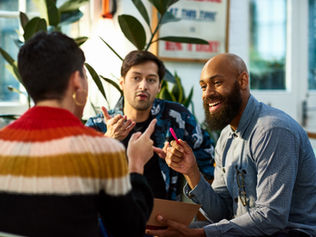The Brazilian Blueprint
Our Intercultural Learning Lab expands thinking about civic engagement beyond any single country's borders. Our current project is the BRAZILIAN BLUEPRINT.
As U.S. Americans, we find ourselves in a deeply unsettling moment in our 250-year-old country. We have long imagined ourselves as a beacon of democracy, yet now face institutional breakdown, polarization, and public distrust from within.
Many look to historical comparisons, particularly the rise of fascism in 1930s Germany, or elsewhere in Europe. But these analogies, while important, offer only partial relevance. Germany is smaller than Texas, and its historical, social, and political contexts differ widely from ours.
Brazil, by contrast, offers a more resonant, relevant, and underappreciated model. It is the second-largest multiracial democracy in the world. Like the U.S., Brazil is a federation of diverse, independent states. It bears the legacy of slavery and colonization. But unlike the U.S., Brazil has rebuilt its democracy within living memory; Brazil emerged from dictatorship in the 1980s with a new constitution designed to fortify democratic institutions.
As we develop a people-focused playbook to counter the authoritarian playbook in use around the world, it is in our national interest to move beyond Eurocentric comparisons and embrace South-North Hemisphere learning.
The Brazilian Blueprint centers Brazil as a democratic peer, not a case study. This program brings together U.S. changemakers to learn from counterparts in Brazil, support civic engagement, and expand civic imagination as our countries move into our next chapters.
Advocacy is nothing without a strong, stable, and functioning government. Whether you call our country a democracy or a constitutional republic, our system of government is not static but rather something that can shift, for better or worse. To be strong, stable, and functioning, our system of government must be defended - and can be reimagined.
We are committed to bolstering resilience with a particular focus on pluralism and culture through cross-cultural learning and community building as well as storytelling, including amplifying stories of civic engagement strategies that are working.
Our four focus areas are:
Equal Treatment Under the Law
Electoral Integrity/Voting Processes
Trusted Information
Social Cohesion











